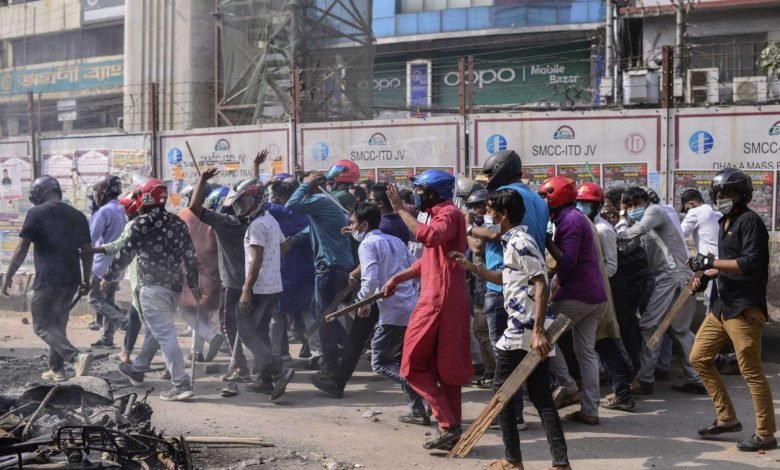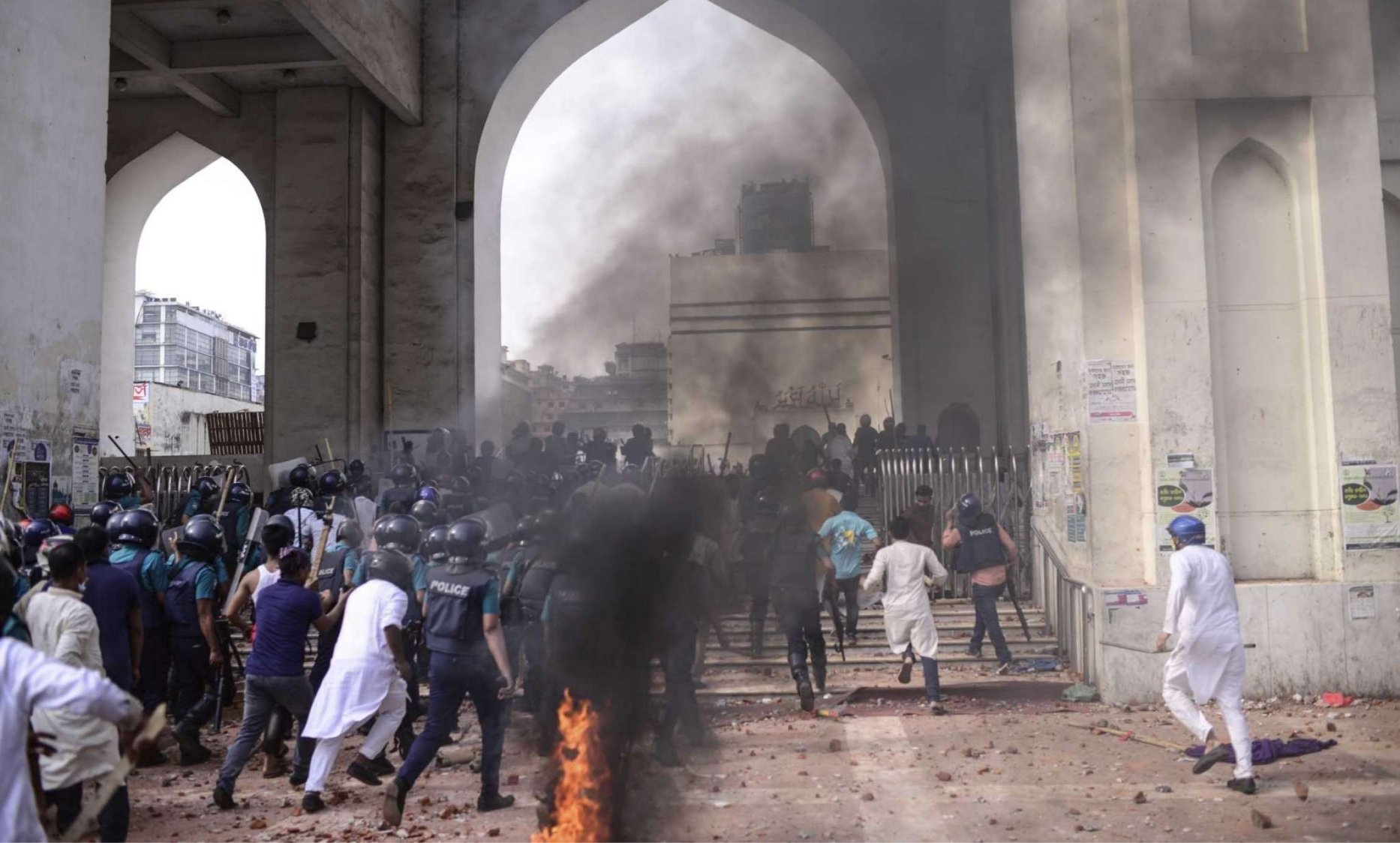13 Killed in Bangladesh During Protest Against PM Narendra Modi

Police brutality in India has been at an all-time high under the current Narendra Modi government. The way this government deals with protests and protesters is not hidden from the common eye, oftentimes ending in the death of unarmed civilians. This can be proved with statistics from any protest site in India, whether the anti-NRC protests in Northeast India or protests from Kashmir.
This phenomenon seems to have crossed the border into Bangladesh now. When Prime Minister Narendra Modi was invited by his Bangladeshi counterpart, Sheikh Hasina, there were widespread protests in the area and unsurprisingly, protesters were dealt with brutal force. The protesters – mostly from the religious hard-line group Hefazat-e-Islam – were angry at the visit of Indian Prime Minister Narendra Modi as Bangladesh marked 50 years of independence, accusing him of stoking communal violence against Muslims in his country.
Two people have died in fresh clashes between protesters and Bangladesh police on Sunday, raising the death toll from religious hard-line protests against the visit of India’s Prime Minister to 13, officials said. Five people died on Friday, and another six the next day, after police shot at demonstrators in several main districts across the Muslim-majority nation of 168 million people. Two others – a 19-year-old and a 23-year-old – died in the eastern district of Brahmanbaria after officers opened fire in clashes in the rural town of Sarail on Sunday, a police spokesman told the AFP news agency.
“They (protesters) stormed a highway police station, torching it and injuring at least 35 policemen. Police opened fire in self-defence,” the spokesman told AFP news agency. He did not say if the pair had been shot dead by police. He said some 3,000 protesters, mostly Hefazat supporters, had blocked a highway and attacked police with bricks and stones. Bangladesh’s Home Minister Asaduzzaman Khan called for the protests to be halted.
“Our security forces are observing this with patience,” Khan told reporters on Sunday. “We think if this is not stopped, we’ll take necessary actions.”
At another protest in Narayanganj just outside the capital Dhaka on Sunday, Hefazat supporters chanted “action, action, direct action” as they blocked the key highway linking Dhaka with the port city of Chittagong. Hundreds of demonstrators burned furniture and tyres on the roads as they chanted anti-Modi slogans and called on authorities to investigate the earlier shootings.
Police fired tear gas and rubber-coated bullets after the protesters barricaded parts of the highway. A police spokesman told AFP they had since left the road. The country’s largest Bengali daily, Prothom Alo, said at least 15 people were injured in the Narayanganj clashes. Bangladesh’s largest English-language newspaper, The Daily Star, reported that at least 10 people were injured when Hefazat supporters attacked a train carrying passengers from Dhaka to Chittagong.

Hefazat spokesman Jakaria Noman Foyezi told AFP thousands of its supporters joined demonstrations at its headquarters at Hathazari outside Chittagong, which is home to a top Muslim seminary. Local media also reported clashes between Hefazat supporters and police in several other cities and towns. The religious hardline group has a nationwide network and has held large protests in the past demanding Bangladesh introduce blasphemy laws.
Protests were also held in the north-eastern city of Sylhet and in Bosila, a Dhaka suburb but there were no reports of violence, local media reported. As Bangladesh celebrated independence, human rights groups criticised the government for what they described as growing authoritarianism, including forced disappearances and extrajudicial killings. Other groups – including students, leftists and other political outfits – also staged protests against Modi’s visit on Friday and Saturday.
Controversial Visit to Bangladesh in View of West Bengal Elections
West Bengal’s Trinamool Congress has written to the Indian Election Commission, alleging that Indian Prime Minister Narendra Modi’s recent visit to Bangladesh had “violated” the code of conduct for the state assembly elections. In the letter, dated March 28, Trinamool Congress also alleged that during Modi’s two-day visit, some of his programmes “intended to influence the voting pattern” in certain constituencies of the state.